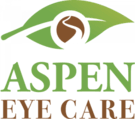
As autumn arrives in Sherwood Park, many of us experience the beauty of changing leaves and cooler temperatures. However, for those prone to seasonal allergies, fall can also bring a less welcome visitor—itchy, irritated eyes. While most people associate fall allergies with sneezing and congestion, they often overlook how allergies can trigger dry eye syndrome.
At Aspen Eye Care, we often see patients who suffer from itchy, red, and dry eyes during the fall, unaware that their symptoms are linked to seasonal allergies.
This article explores the relationship between fall allergies and dry eye, helps you distinguish between the two conditions, and offers practical tips to reduce discomfort.
The Link Between Fall Allergies and Dry Eye
Fall allergies are typically caused by environmental allergens like pollen, mold spores, and ragweed. When these allergens come into contact with your eyes, they trigger an immune response, leading to inflammation and the release of histamines. While this process protects the body, it can cause uncomfortable symptoms like itching, redness, and watery eyes.
Allergies and dry eye are closely connected because the allergic response can disrupt the eye’s tear film. Tear film is crucial for maintaining moisture and protecting the surface of your eyes. When it’s compromised, your eyes can become dry and irritated.
Symptoms of Fall Allergies and Dry Eye
The symptoms of fall allergies and dry eye often overlap, making distinguishing between the two conditions challenging. Here are some key symptoms to watch for:
Symptoms of Fall Allergies
- Itchy eyes
- Redness or swelling
- Watery eyes
- Sneezing, nasal congestion
- Sensitivity to light
Symptoms of Dry Eye
- Dry, gritty feeling in the eyes
- Burning or stinging sensation
- Red, irritated eyes
- Blurred vision
- Sensitivity to light
- Difficulty wearing contact lenses
Both conditions can cause similar discomfort, but the difference lies in the underlying cause. Allergies result from an immune reaction to environmental allergens, while dry eye is caused by insufficient tear production or poor tear quality.
How to Distinguish Between the Two
If you are experiencing eye discomfort during the fall, it’s important to identify whether your symptoms are due to allergies, dry eye, or both. Here are some tips to help you differentiate between them:
- Consider Timing: If your symptoms appear only during the fall, allergies are likely to blame. If you experience dry, irritated eyes year-round, you may be dealing with chronic dry eye.
- Other Allergy Symptoms: If you are sneezing, have a runny nose, or feel congested, your dry eye symptoms may be linked to fall allergies.
- Evaluate Your Environment: If you spend a lot of time outdoors during the fall or live in an area with high pollen counts, your symptoms may be allergy-related. If you notice dry eye symptoms indoors or when using screens, you may have a dry eye condition.
- Look at Your Medications: Certain medications, including antihistamines, can dry out your eyes. If you’ve recently started taking allergy medications, they may contribute to your symptoms.
Reduce Fall Allergies and Dry Eye Discomfort
Fortunately, there are several ways to manage fall allergies and dry eye symptoms:
- Limit Outdoor Exposure: On high-pollen days, try to stay indoors. If you go outside, wear sunglasses to shield your eyes from allergens.
- Use Artificial Tears: Lubricating eye drops can help restore moisture to the eyes and alleviate irritation caused by allergies and dry eye syndrome.
- Invest in a Humidifier: Fall weather can be dry, especially indoors. A humidifier can add moisture to the air, reducing the likelihood of your eyes becoming dry.
- Avoid Rubbing Your Eyes: While it may be tempting to rub your itchy eyes, it can further irritate them and worsen your symptoms.
- Consult Your Eye Doctor: If you are struggling to manage your symptoms, it’s best to see an optometrist who can provide a tailored treatment plan.
Dry Eye Services at Aspen Eye Care
Our Sherwood Park eye clinic is skilled in diagnosing and treating dry eye syndrome. Our comprehensive dry eye evaluations help us determine the root cause of your symptoms, whether related to fall allergies, environmental factors, or chronic dry eye.
Schedule an Eye Exams in Sherwood Park, AB
If you are experiencing itchy, red, or dry eyes this fall, Aspen Eye Care is here to help. Our team can provide a thorough evaluation and recommend effective treatments to relieve your discomfort.
Don’t let fall allergies ruin your season—schedule an appointment with us and take the first step toward healthier, more comfortable eyes.

Alternating Saturdays: 10-4 (please call)*
We are offering shopping hours on Saturdays (alternating).